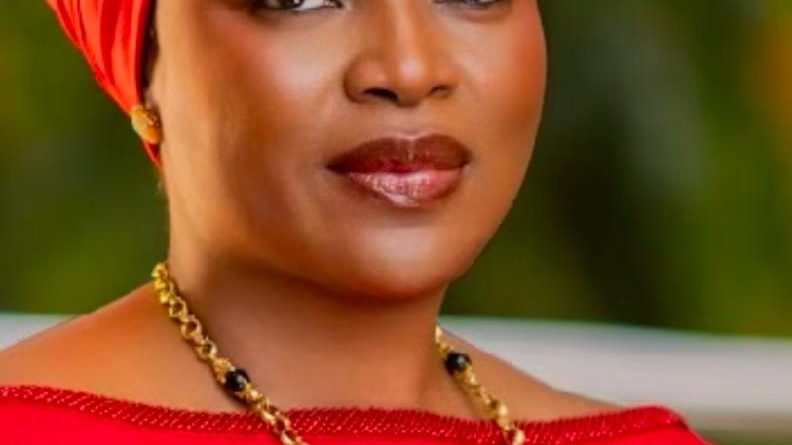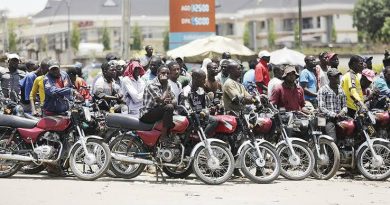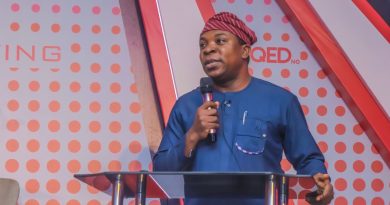Aisha Babangida And the African Rural Woman …Celebrating International Day For Rural Women
By Edwin Uhara
Therefore, the challenges facing African Rural Women necessitated the celebration of Aisha Babangida’s efforts in giving rural women a voice and access through many of her NGOs. Still, because this piece is about the International Day of Rural Women, I limited the scope of this article to the Better Life Program for the African Rural Woman for what they are doing silently.
There is no better time to appreciate the humanitarian gestures of Aisha Babangida, a woman who has been silently transforming the lives of people around her than using the occasion of this year’s International Day for the Rural Women; a day set aside by the United Nations to raise awareness on the status of women and to shed more lights on the inequalities women still face as well as advocate for their recognition and participation in decision-making and demanding stronger social protection systems that reduces the digital divide they face in this century.
Accordingly, the works of Aisha Babangida have become even more pronounced as we mark the 30th anniversary of the famous Beijing Women’s Conference of 1995 this year.
And in line with this year’s theme, “Rural Women Sustaining Nature for our Collective Future,” Aisha Babangida, through the Better Life Program for African Rural Women, has been shaping the lives of rural women by equipping them with relevant skills through training and empowerment.
However, the empowerment of the Better Life Program differs from other empowerment programs, which often employ a general template that overlooks the specific needs of each state or zone. In contrast, the Better Life empowerment program is tailored to state-to-state and region-to-region priorities, based on a SWOT analysis.
Hence, before deciding on the type of training and empowerment to be offered to a particular region, the Better Life Program will first of all get the baseline data and analyse it to ascertain the strengths, weaknesses, opportunities and threats of the zone before coming forth with an empowerment Program that suits the zone while capitalising on the comparative advantage the region already has.In other words, their focus is on building on the strengths and opportunities of each state or region.
For example, a state with a strong foundation in groundnut production, such as Kano, would be leveraged by training its women and girls in modern groundnut production techniques and empowering them on that basis, so as to add value to themselves and create value chains.The reason is that the template that works in Kano State will likely not work in Enugu State, because apart from comparative advantage and market availability, topographical differences are also a factor.All these factors are considered by the Better Life Program before rolling out its programs, and this has helped ensure that empowerment reaches the people who need it most.Similarly, empowering women is not only a right but also a potent force for alleviating poverty, hunger, diseases and reducing the effects of global warming.
According to a UN report, “Women are responsible for half of the world’s food production while working as environmental and biodiversity stewards.”Even then, there are still challenges facing rural women globally. The UN report further stated that, “Women and girls in rural areas suffer disproportionately from multi-dimensional poverty.”“They may be as productive and enterprising as their male counterparts but are less able to access land, credit, agricultural inputs, markets, and high-value agrifood chains and obtain lower prices for their crops.”
The report added that “Women and girls in rural areas lack equal access to productive resources and assets, public services, such as education and health care, and infrastructure, including water and sanitation, while much of their labour remains invisible and unpaid.”In the same vein, the report added that ‘If women had the same access to productive resources as men, farm yields could increase by 20–30 per cent, feeding an additional 100 to 150 million people.”Based on the foregoing, empowering our women is no longer a choice but a necessity.
Therefore, the challenges facing African Rural Women necessitated the celebration of Aisha Babangida’s efforts in giving rural women a voice and access through many of her NGOs. Still, because this piece is about the International Day of Rural Women, I limited the scope of this article to the Better Life Program for the African Rural Woman for what they are doing silently.
While I encourage Aisha Babangida to continue her good work for humanity, I also appeal to public-spirited individuals to support this good cause for the sake of the common humanity we share.Happy International Day for Rural Women!
Comrade Edwin Uhara is a UN-trained Negotiator and writes from Abuja




